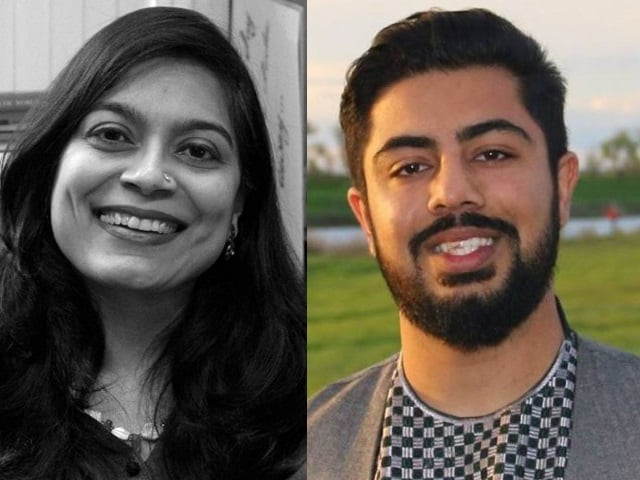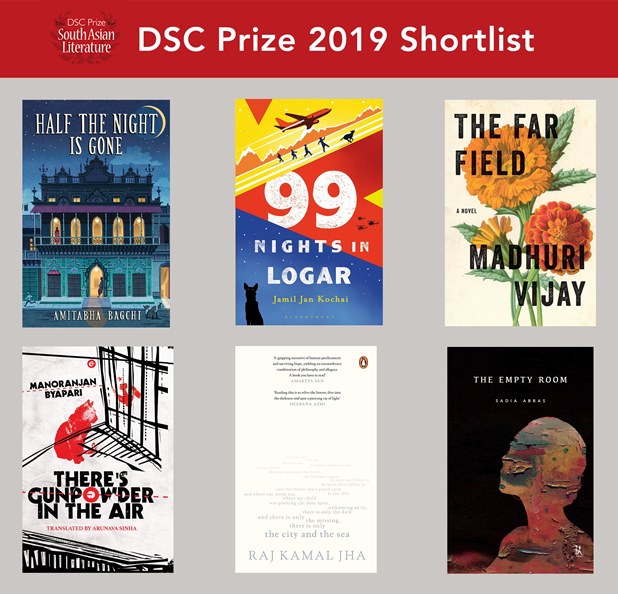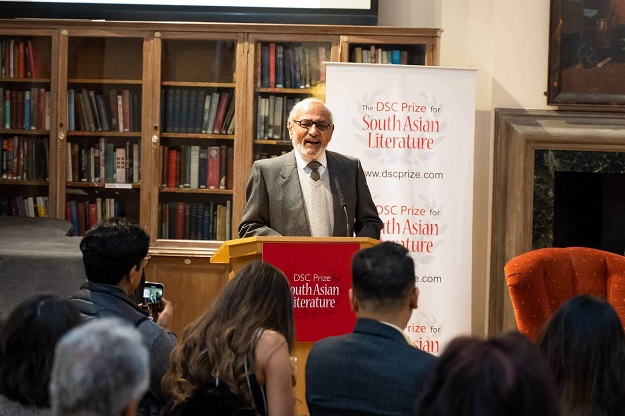Pakistani-origin authors shortlisted for South Asian Literature awards
DSC Prize is the most prestigious international literary awards specifically focused on South Asian fiction writing

Sadia Abbas and Jamil Jan Kochai
Four other writers are also competing for the most prestigious international literary awards, with $25,000 winning prize, specifically focused on South Asian fiction writing.
The much-anticipated shortlist was announced during an event held at the London School of Economics & Political Science on Thursday, an official statement said.
Sadia Abbas, who indiscriminately loves all sorts of films, grew up in Pakistan and Singapore. She received her PhD in English literature from Brown University, and currently teaches in the English Department at Rutgers University-Newark in New Jersey.

The author's book, The Empty Room, orbits around the era of 1970 when violence, political and social uncertainty were on the rise in Karachi. She narrates the tale of a talented painter named ‘Tahira’ who tries to hold her life together as it shatters around her.
The book is referred as an important addition to contemporary Pakistani literature as it is a powerful meditation on art and the dilemmas faced by women who must find their own creative path in hostile conditions.
Jamil Jan Kochai, who grew up in the United States, holds a masters degree in English from UC Davis and is a Truman Capote Fellow at the Iowa Writers’ Workshop.
Mohsin Hamid, Kamila Shamsie's work named in BBC Top 100 Novels
Kochai’s shortlisted book — 99 Nights in Logar is a stunning coming-of-age novel and a portrait of contemporary Afghanistan blending grit and immediacy with lyrical myth-making.
Based on a setting of 2005 in Logar, Afghanistan the story revolves around a 12-year-old Marwand who has returned from America for the summer. He loses the tip of his finger to Budabash, the family dog, who then escapes; Marwand’s quest to find him over 99 nights begins.
According to the South Asian Literature synopsis, 99 Nights in Logar is a vibrant exploration of the power of stories.
The shortlist of six novels was formally announced by the chair of the jury panel Harish Trivedi, which was enthusiastically welcomed by publishers, authors and the literary personalities who attended the event.
 Harish Trivedi speaks at the shortlist announcement event in London.
Harish Trivedi speaks at the shortlist announcement event in London.“The shortlist that we have arrived at comprises six novels – for the good reason that the five jurors, located in five different countries, could not agree on just five novels,” Trevidi said.
“There is now a South Asia beyond South Asia.Two of the six novels are set partly in New Delhi, and partly in the surrounding countryside in one case, and in the other case partly on the Baltic coast. One of the novels is set in Pakistan of the 1970s, one in Kashmir, and one in Afghanistan. The sixth is actually set in a prison and was written originally in Bengali by an author who has actually served time and used that period to learn to read and write. That too is South Asia,” he added.
The DSC Prize, founded by Surina Narula and Manhad Narula in 2010, is administered by the South Asian Literature Prize & Events Trust, and it received a record 90 eligible entries this year from 42 publishers and 55 imprints from across the globe.
The jury panel – comprising of various literary luminaries drawn from diverse geographies and expertise — would meet next month to debate, discuss and arrive at the final winner that would be announced at a special award ceremony on December 16 at the IME Nepal Literature Festival in Pokhara, Nepal.



















COMMENTS
Comments are moderated and generally will be posted if they are on-topic and not abusive.
For more information, please see our Comments FAQ